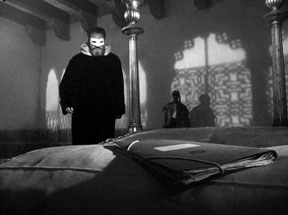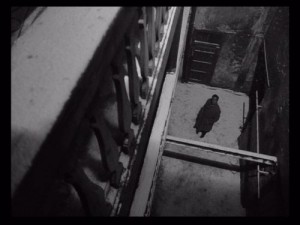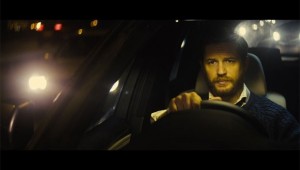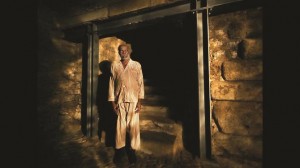This was (mainly) published in Video Watchdog‘s July/August 1992 issue, with an accidentally deleted passage included in the errata section of their September-October 1992 issue. -– J.R.


A brief note of clarification about my liner notes to the Criterion laserdisc of CONFIDENTIAL REPORT -– cited and questioned by Tim Lucas at the beginning of his excellent article [VW 10: 42-60]. The only reason why I failed to mention a third and (in my opinion) better version of MR. ARKADIN in these notes –- a version discussed by Lucas elsewhere in this issue –- is that I was under strict instructions from Criterion not to bring this matter up. I reluctantly agreed to this suppression of information only because I knew I would be writing about this version elsewhere (in [the January-February 1992 issue of] Film Comment), and I’m mentioning this anecdote now because I think it dramatizes the thin line separating criticism from publicity in most liner notes -– a general problem that readers of this magazine should be alerted to.
I don’t wish to denigrate the often fine work done by Criterion in making many important works available, but I do believe that the level of scholarship that’s attainable in commercial enterprises of this sort varies considerably from case to case. Read more
Written in September 2014 for my December “En movimiento” column in Caimán Cuadernos de Cine. — J.R.


Last September, I ordered from Amazon a three-disc DVD box set released by Lionsgate called Big History consisting of 17 episodes lasting almost seven and a half hours. My curiosity was spurred by an article by Andrew Ross Sorkin in the New York Times Magazine about billionaire Bill Gates enthusiastically discovering this package — a college course taught by Australian professor David Christian — while working out in his private gym, and then deciding to use this TV series to try to revolutionize the teaching of history in both American high schools and colleges.



To my amazement, and in spite of all my qualms, Big History proves to be one of the most exciting things I’ve seen this year — not as moral instruction or as a technical tour de force (unlike Steven Knight’s Locke, which resurrects the heroism of the great Westerns, or Godard’s Adieu au langage, which reinvents 3-D) and not as distilled and hallucinatory poetry (unlike Pedro Costa’s Horse Money), but as a series of lucid pedagogical lessons, especially welcome for someone like me who has always been weak in science. Read more
Written for the Savannah-based, online Cine-Files in May 2014, posted circa early June, and reprinted here, with their permission (and some added illustrations). — J.R.

JONATHAN ROSENBAUM: For me, a key part of your argument in Acting in the Cinema (Berkeley: University of California Press, 1988) occurs in your fourth chapter, “Expressive Coherence and Performance within Performance,” when you argue that even a sincere expression of one’s feelings is an actorly performance, “because the expression of ‘true’ feeling is itself a socially conditioned behavior.” Which then leads you to quote from Brecht:
“One easily forgets that human education proceeds along theatrical lines. In a quite theatrical manner a child is taught how to behave; logical arguments only come later. When such-and-such occurs, it is told (or sees), one must laugh….In the same way it joins in shedding tears, not only weeping because the grow-ups do so but also feeling genuine sorrow. This can be seen at funerals, whose meaning escapes children entirely. These are theatrical events which form the character. The human being copies gesture, miming, tones of voice. And weeping arises from sorrow, but sorrow also arises from weeping.” (69)
It seems to me that one reason why acting tends to be neglected in film criticism is that we can too easily confuse it with other elements — writing, directing, the ‘auras” of certain personalities, even certain casting decisions — in much the same way that we’re often confused or misguided about the sources of our own behavior (such as, are we weeping to express sorrow or to produce sorrow?) Read more








